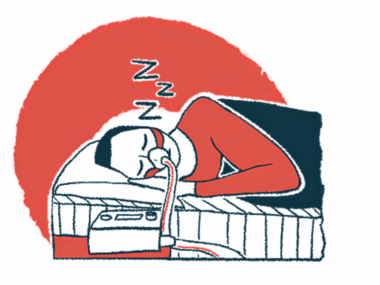Vyvgart a rapid, effective treatment for impending myasthenic crisis
Analysis showed MG symptoms ease more with efgartigimod than with IVIG
Written by |

Treatment with Vyvgart (efgartigimod) may rapidly and safely ease symptoms during an impending myasthenic crisis in people with myasthenia gravis (MG), according to a study in China.
Impending myasthenic crisis, or IMC, refers to symptoms rapidly worsening within a short time that may lead to a myasthenic crisis, or life-threatening episodes of breathing problems that require ventilation. The study showed Vyvgart led to a more significant easing of symptoms over intravenous immunoglobulin (IVIG), which is commonly used for IMC.
“These findings suggest that [Vyvgart] is a treatment option for [impending myasthenic crisis] in addition to IVIG and plasma exchange,” the researchers wrote.
The study, “Efgartigimod versus intravenous immunoglobulin in the treatment of patients with impending myasthenic crisis,” was published in Scientific Reports.
MG is an autoimmune disease caused by autoantibodies that target proteins at the neuromuscular junction, where nerve and muscle cells communicate to coordinate voluntary movement. In about 80%-85% of patients, the antibodies target acetylcholine receptors (AChRs) in muscle cells. Symptoms include muscle weakness and fatigue that may affect several muscle groups, but the most serious complication is a myasthenic crisis, where breathing difficulties require invasive or noninvasive ventilation.
Identifying IMC early and initiating aggressive treatment to provide rapid symptom relief is important to prevent a myasthenic crisis and reduce disease-related mortality.
Treatments for managing IMC include IVIG and plasmapheresis, or plasma exchange. IVIG preparations contain immunoglobulins, or antibodies, collected from healthy donors that are believed to help eliminate and neutralize MG-causing autoantibodies. In plasma exchange, the liquid component of blood, or plasma, is replaced with a substitute that doesn’t contain MG-causing antibodies.
Vyvgart vs. IVIG
Researchers in China retrospectively analyzed 19 MG patients who were positive for anti-AChR antibodies and were having an IMC to compare the efficacy of Vyvgart and IVIG in rescuing patients from symptoms.
Vyvgart is an approved MG therapy that blocks the neonatal Fc receptor (FcRn), a protein that helps stabilize antibodies circulating in the bloodstream and prevent their destruction, including those that drive MG. Blocking FcRn should accelerate the rate at which MG-driving antibodies are broken down, lowering their levels in the bloodstream and easing MG symptoms.
The patients had a mean age of 58 and more than half (57.9%) were women. They had been diagnosed for a mean of 13.2 months, or just over a year. Nine were treated with Vyvgart and 10 with IVIG. At their enrollment, almost all were being treated with pyridostigmine, which is sold as Mestinon, and some were also treated with immunosuppressants and corticosteroids.
The study’s primary efficacy outcome was to assess changes in the score of the MG Activities of Daily Living (MG-ADL), a scale that assesses the disease’s impact on the ability to perform daily functions. Lower scores indicate less impairment and better function.
Those treated with Vyvgart had a significantly higher reduction in MG-ADL scores after one week (mean reduction, 6.7 vs. 3 points) and four weeks (mean reduction of 11.1 vs. 6.8 points) than those receiving IVIG.
Moreover, there was a trend toward a higher reduction in the MG Composite (MGC) score among Vyvgart-treated patients after a week (13.6 vs. 5.8). MGC is a measure of disease severity, where higher values represent more severe disease.
One patient treated with Vyvgart had an upper respiratory tract infection with a fever that eased in six days with oral ibuprofen, an anti-inflammatory treatment. No other adverse or serious adverse events were reported.
“Overall, these results suggested rapid therapeutic effect of [Vyvgart] and indicated that [it] could be a rescue therapy for IMC or [myasthenic crisis] patients,” the researchers wrote.




Leave a comment
Fill in the required fields to post. Your email address will not be published.